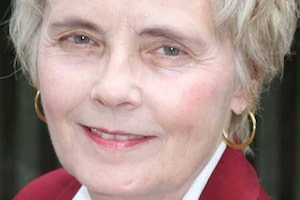Sharon Dominick/Getty Images/iStockphoto
The Globe's biweekly business-school news roundup.
Amandine Michaud, an MBA student at HEC Montréal set to graduate this spring, had never participated in a case competition.
But she jumped at the chance, with three other classmates, to represent her school at the first diversity and inclusion MBA case competition held at the University of Ottawa's Telfer School of Management last month.
"I felt the topic was extremely relevant and it is not a topic that is often mentioned in our classes or at conferences," says Ms. Michaud. "The working world is becoming more diverse … with multiple generations working together. It has to work if a company wants to be able to deliver the goods."
How to move beyond lip service to create a diverse and inclusive workplace was the theme of the two-day competition organized by Telfer with Export Development Canada and Deloitte as industry sponsors.
At the event, which included a workshop on unconscious bias, teams from seven business schools were given three hours to recommend solutions to a jury about a real-life challenge posed in a 2006 Harvard Business School case study: how India-born Indra Nooyi, at the time recently promoted to chairman and chief executive officer of Pepsi-Cola Co., should lead the next phase of diversity and inclusion efforts at the food and beverage giant.
"This was not a typical topic [for a case competition]," says Gregory Richards, MBA program director at Telfer, who saw the potential for a bilingual school with a diverse student body to work with two organizations (public and private) for whom diversity and inclusion are top concerns. "It seemed like a natural fit," he says.
Justine Hendricks, a vice-president in the finance and investment group at EDC, said her organization was keen to sponsor the competition. "Diversity is one of our strategic priorities," she says. "The trend in business schools is to do the more traditional [competitions] in marketing and strategy, but your diversity plan is key and integral to your strategic plan."
For organizations like hers, dealing with a cross-section of Canadian industry exporting to the world, "being able to have that diversity of thought at the table that brings together many perspectives is almost like the secret sauce," Ms. Hendricks says. "We believe it is a must-have in today's day and age."
Deloitte partner Kate Morican, lead for human capital services in Ontario for the international consulting firm, says "our own research shows millennials will make up 75 per cent of the work force by 2025. That has significant implications for how you connect with your employees and work force."
Increasingly, teams of employees are expected to work across subject disciplines and geographic areas while adjusting for cultural and other differences in how they communicate with each other and their clients.
Ms. Michaud, who is from Mauritius, and her teammates from Vancouver, Morocco and Tunisia knew each other from class but had not worked together before the competition.
"Two key things that helped us was the sense of trust and the ability to listen," says Ms. Michaud, given the high-pressure, time-sensitive nature of the competition. "We didn't see everything the same way but had to come up with a solution and we listened to each other."
In the end, the HEC team of Ms. Michaud, Habib Ben Mansoura, Niki Parassidis and Abdelghani Zniber won the competition.
Jackie Scales, senior manager in human capital in the Toronto office of Deloitte and one of the judges for the competition, praised the winners for presenting short-term solutions (such as creating employee groups based on shared interest instead of ethnic background) without losing sight of Pepsi's long-term ambitions for a diverse and inclusive workplace.
"In a place of borderless talent such as we are today, it is going to be more and more important that we consider what inclusive leadership looks like and recognize that our conscious biases cast a leadership shadow," says Ms. Scales.
"To create that foundation of trust, respect and value will be a game-changer for business leaders. We need to make sure that everyone understands that."
First graduates from supply chair specialty degree
For Canadian business schools, China remains a promising target for program partnerships.
This spring, the first China-based graduates of a master in global manufacturing and supply chain management, offered by McGill University's Desautels Faculty of Management and Zhejiang University in Hangzhou (southwest of Shanghai), have an opportunity to graduate twice. One ceremony was held in China in February, but graduates were also invited to receive their parchment at graduating ceremonies held in Montreal this June.
"The problem of having an off-campus program is that they don't feel like McGill students and haven't seen the campus," says Saibal Ray, vice-dean of faculty and research at Desautels and director of the specialty master, offered part-time over two years.
With a class of 30 or so expected for this fall's intake, McGill will offer an option for students to spend a semester in Montreal and take courses with other students from Desautels, says Prof. Ray.
Typically, the joint program recruits candidates from Chinese and Canadian companies in Hangzhou, a port city with a metropolitan area population of 21 million. A surprising number of students in the program, says Prof. Ray, want to start their own company.
Follow Jennifer Lewington and Business School News by subscribing to an RSS feed here.
Contact Jennifer at jlewington@bell.net
 Jennifer Lewington
Jennifer Lewington